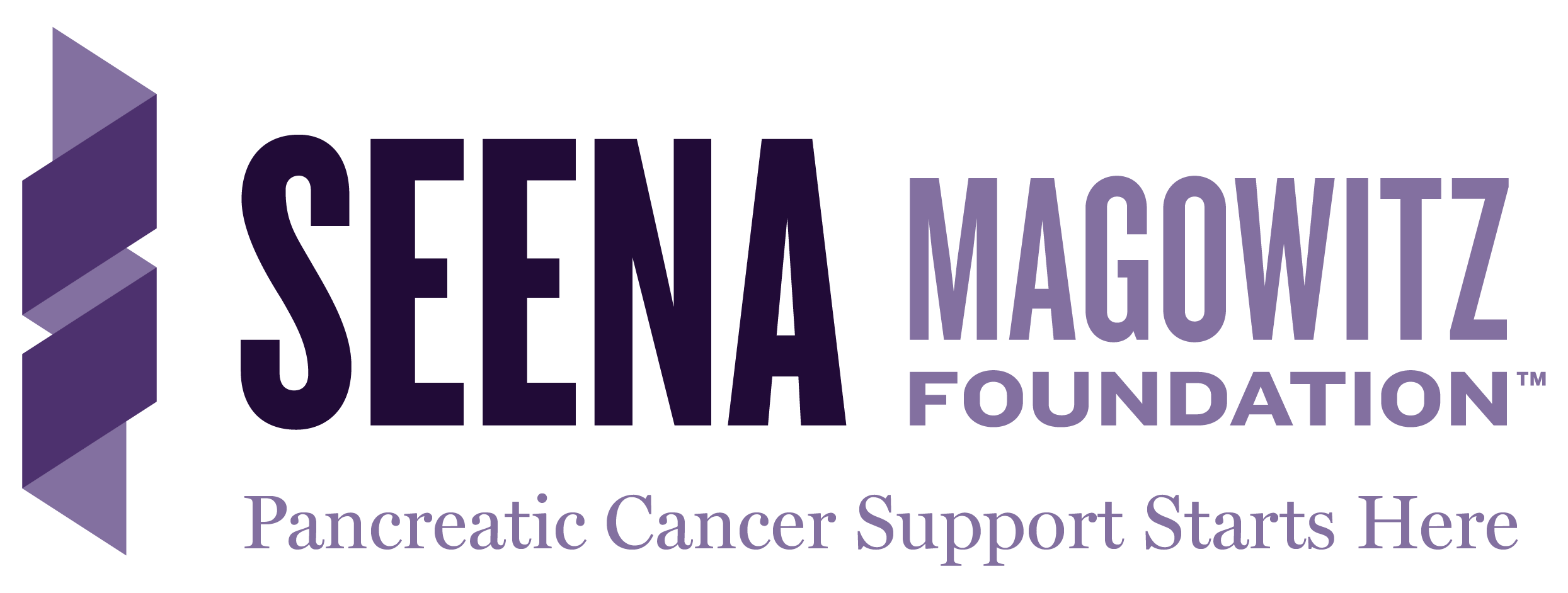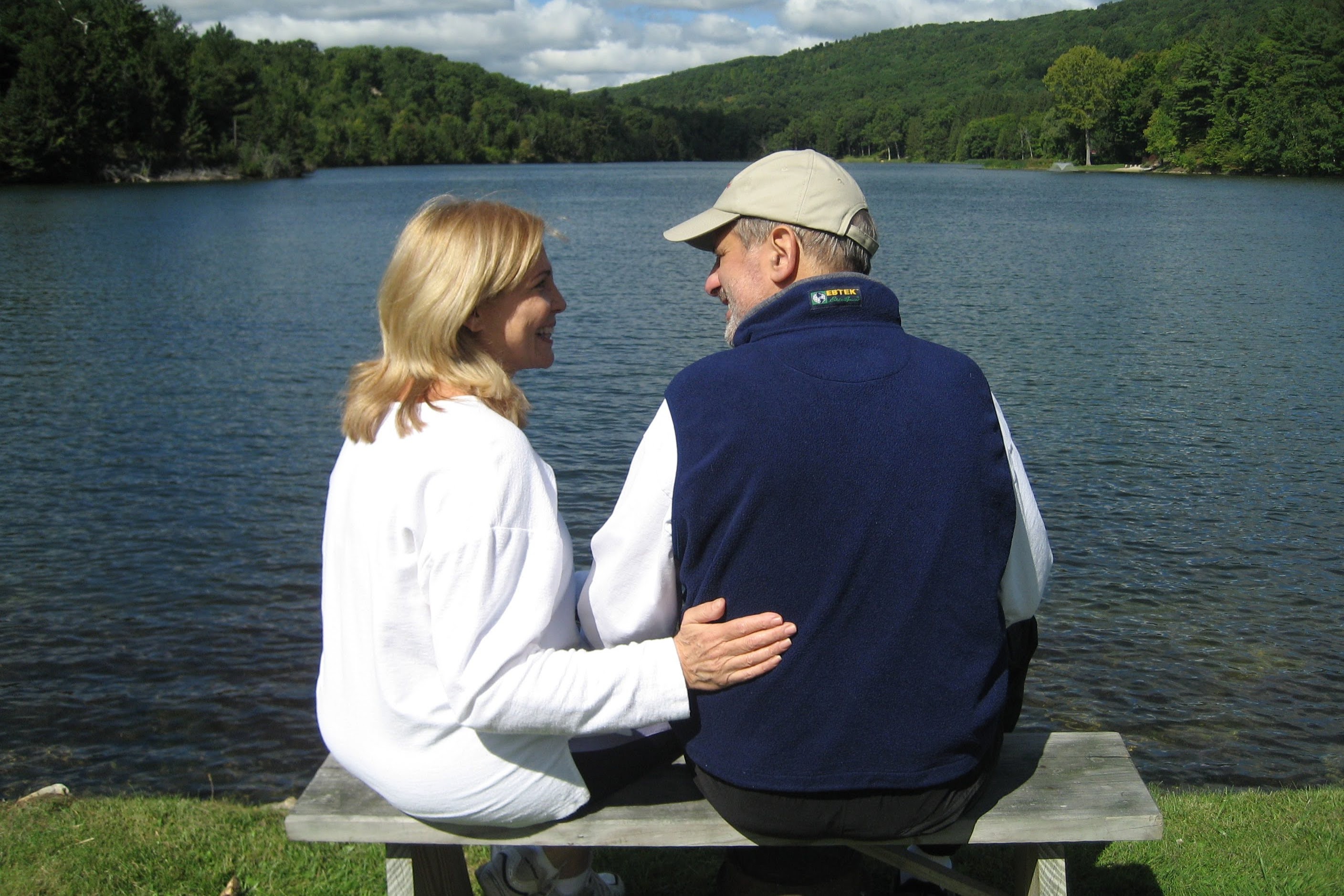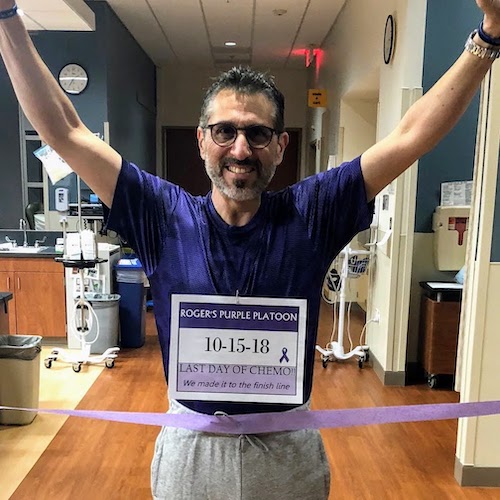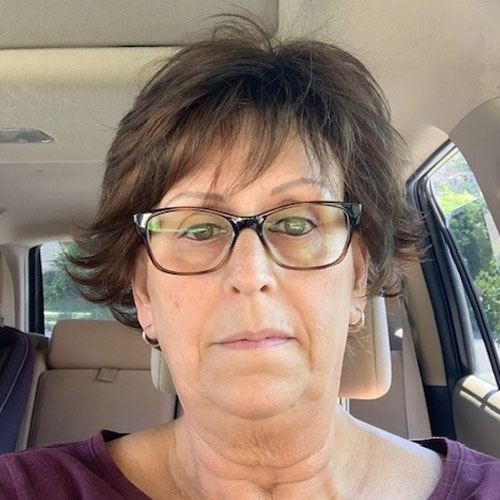Steven First Diagnosed in 2007 and Metastasized in 2010
Steven Lewis, May 2021Survived Over 11 Years Since My Metastasized Stage 4 Pancreatic Cancer Diagnosis in 2010
After turning yellow from jaundice, I was first diagnosed with pancreatic adenocarcinoma in 2007 and a week later underwent Whipple surgery at Beth Israel Deaconess Medical Center in Boston, where I had virtually all major treatments. The pathology report revealed the surgery had removed more than 99 percent of the tumor from the head of my pancreas, but a few PC cells remained at the surgical margin. A few weeks later, I was treated with CyberKnife radiation to kill these cells. I later had 6 weeks of conventional abdominal radiation followed by 12 weeks of chemotherapy with gemcitabine.
The cancer never returned to my pancreas and there was no evidence of disease until 2010 when a liver metastasis of the PC was noted on a routine surveillance scan and confirmed by liver biopsy. I was then told to expect only palliative care which was unacceptable to me. I told my doctors I wanted treatment that was “bold, aggressive, decisive and rapid” in the form of a PET scan to see if there was PC metastasis beyond my liver and, if no tumor activity was detectable elsewhere, liver surgery to remove the tumor.
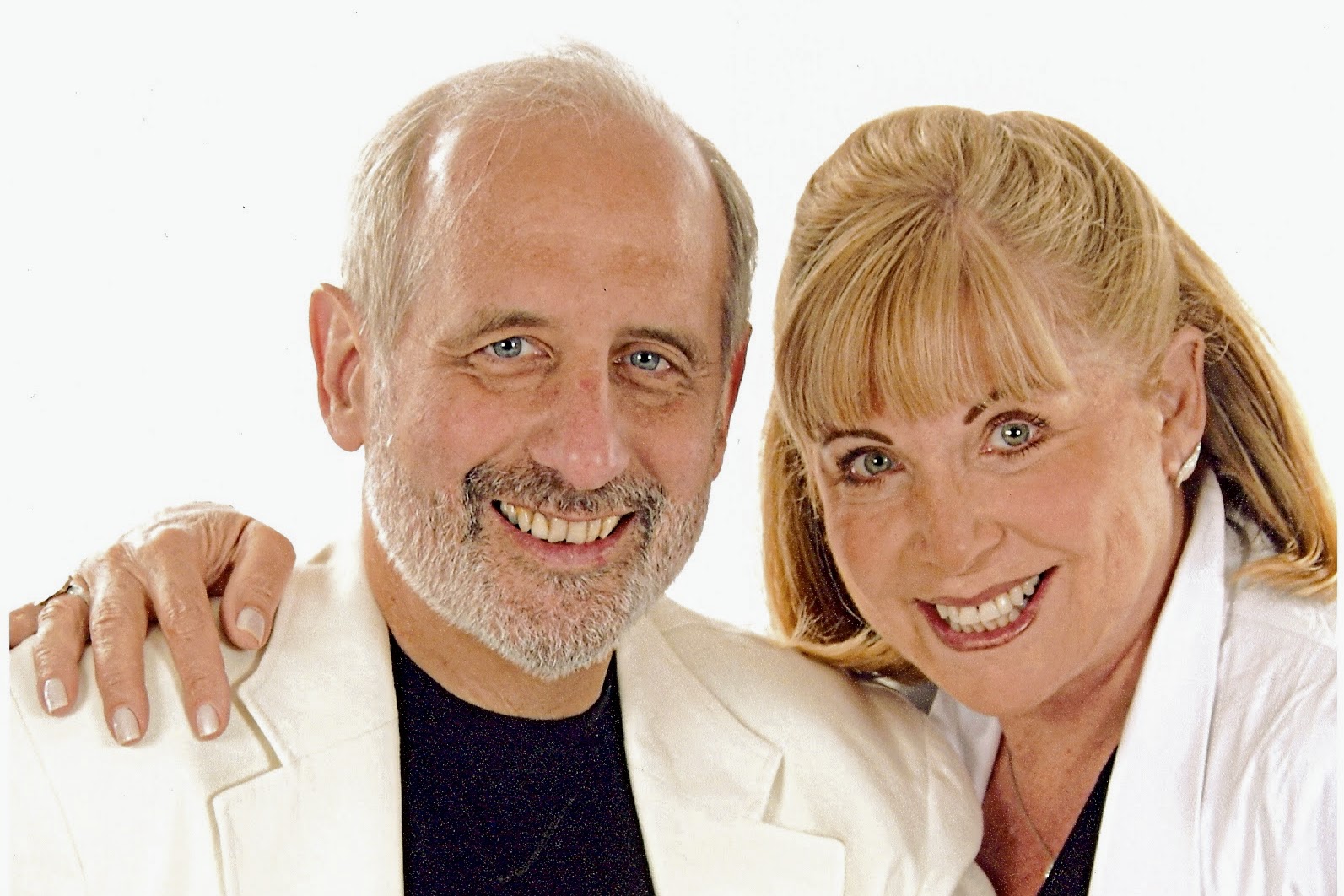
My key message for patients and their families is that the emotional battle with pancreatic cancer is just as important as the physical battle.
My doctors first resisted this proposal but later agreed to bring my case to the hospital tumor board. The board evaluated my case – which included a negative PET scan – and finally agreed to the liver surgery that removed the metastatic tissue. I had no additional chemotherapy or other treatment for the metastasis. Only much later I learned that no stage 4 pancreatic cancer patient treated at that hospital had survived before me.
Today, at 72 years old, I enjoy all life has to offer, including no dietary restrictions or regular medications, regular strenuous aerobic and resistance exercise, and a vigorous full-time career as a medical school professor. This year, my wife and I celebrated our 50th wedding anniversary.
Over the eleven years I’ve survived since my stage 4 pancreatic cancer diagnosis, I’ve transitioned from cancer patient to survivor and to pancreatic cancer advocate.
During this time, I’ve regularly promoted awareness of pancreatic cancer on social media and frequently have shared my story with PC patients I’ve counseled and in many public formats including invited speaking engagements, newspaper and magazine articles, radio shows and podcasts. In addition, I’ve published a book about my pancreatic cancer experience titled, “The Ripple Effect: How a Positive Attitude and a Caring Community Helped Save My Life”. All of this, I believe, has provided much hope for many patients and their loved ones. Also, as director of the medical school course that provides students with their first exposure to pancreas and liver diseases, each year I present the details of my case to eager-to-learn future doctors.
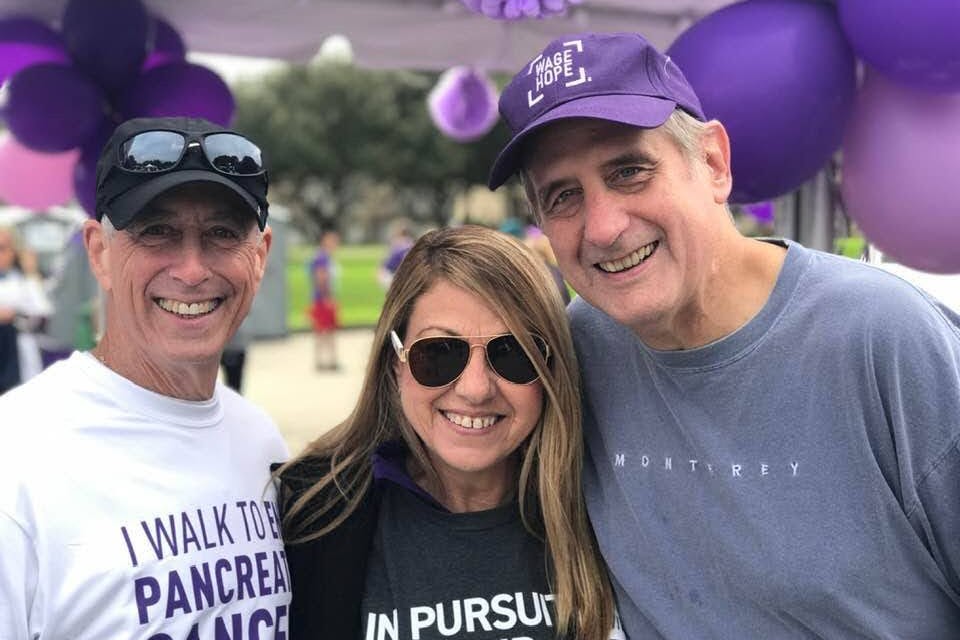
A 10 percent survival rate is still much too low, but the pancreatic cancer community has been working hard to change this. A key first step is to increase public awareness of pancreatic cancer.
Good news for pancreatic patients and their families is that since my first diagnosis about a decade and a half ago, the average 5-year survival rate for pancreatic cancer has doubled from about 5 to 10 percent.
A 10 percent survival rate is still much too low, but the pancreatic cancer community has been working hard to change this. A key first step is to increase public awareness of pancreatic cancer. It is encouraging, from many personal interactions since my first diagnosis 14 years ago, that the public today is much more aware of the increasing length of survival from pancreatic cancer as knowledge of treatment via successful surgery, advances in tumor ablation and improved chemotherapy becomes more widespread.
A debt of gratitude is owed to organizations such as the Seena Magowitz Foundation and other institutions dedicated to eradicating pancreatic cancer for generously supporting pancreatic cancer doctors and researchers in their efforts for better detection and treatment.
Despite many such recent advances, there is much more work to be done. Currently, about 25 percent of pancreatic cancer patients still die with one month after diagnosis, 50 percent pass away within three months and almost 3/4 of patients are gone within one year. Beyond the tragic personal aspects of pancreatic cancer, this collective loss of survivor advocates handicaps the overall fight to conquer this illness. It is difficult to replace the missing voices of those whose wisdom and experience can relate first-hand the life journey and the physical and emotional toll on themselves and their loved ones on the roller-coaster ride through the world of pancreatic cancer. As one of relatively few who’ve transitioned from cancer patient to long-term survivor while also being an active advocate and teacher who regularly thinks deeply about pancreatic cancer, I believe I can offer unique perspective.
Many pancreatic cancer patients and well-meaning loved ones do not realize the statistics, such as those I’ve mentioned above, are merely numerical trends and do not forecast the outcome for any one individual. As individuals, pancreatic cancer patients have different disease progressions before being diagnosed, different courses of disease and different outcomes. Similarly, each patient brings different health habits and status, different personal experiences and different family situations to their diagnosis and treatments.
A vivid memory from my own experience is that when my surgeon visited after my Whipple procedure and my wife challenged him to tell her approximately how long I would live he refused to answer knowing that individuals react so differently. Only when she pressed him and I agreed to know, he said that about 40 percent of patients in my specific situation survived five years. I was able to quell my wife’s distress by ensuring her I’d be one of the 40 percent.
Despite their many individual medical differences, it is important to realize that a major factor common to virtually all pancreatic cancer patients and their loved ones is that they face major emotional struggles.
With diagnosis and treatment, urgent life questions arise such as: Will I survive? If I do, what will my life be like going forward? How will my loved ones cope with all this? How do we tell friends and relatives about my illness and keep them informed of my treatment progress? All this severely tests the emotional equilibrium of patients and their families. It takes tremendous effort to avoid lapsing into a pattern of negativity and despair that can detract from quality of life of all concerned and limit the effectiveness of the patient’s vital support network. In my own cancer fight, I made a deliberate, difficult decision to stay upbeat throughout my entire journey.
My attitude, of course, did not change abruptly but only after deep thinking over several days. I realized I needed to avoid emotional devastation and its attendant poor quality of life for my loved ones because their support was vital to my survival. This was a life-altering choice that required conscious resolve amidst both my first and second shocking PC diagnoses and all the brutal treatments I underwent. It is this, the emotional side of pancreatic cancer, that is the major underlying theme of the book I wrote about my PC experience and of many of the other venues in which I’ve shared my survival story.
My key message for patients and their families is that the emotional battle with pancreatic cancer is just as important as the physical battle.
Because of this, it is important to plan carefully for upcoming and ongoing emotional issues as time passes, the patient’s condition changes and there are new medical test results. I believe my choice to stay upbeat and positive provided an important sense of control crucial to my own emotional well-being and that of my loved ones. Though I could not master all the events swirling around me, I could control – or deeply impact – my emotional and, in some cases, my physical reactions to many events. I call this the “power of choice” and I believe it is a conscious choice that patients can make that can help empower them in facing a life-threatening illness such as pancreatic cancer. Regardless of the outcome of the physical battle with pancreatic cancer, I feel it is possible to be victorious in the emotional battle.
As pancreatic cancer awareness spreads and detection and treatment of pancreatic cancer gradually improves, the battle to conquer pancreatic cancer will eventually be won. For now, my view is that the battle will be won one patient at a time, as each patient’s unique medical and emotional situation is better recognized, understood and treated by their doctors and themselves and their loved ones.
As more and more patients gradually overcome pancreatic cancer, the collective voice of all concerned will more loudly and clearly proclaim, “We’ve got this!”.
